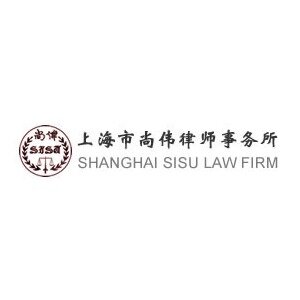Best Due Diligence Lawyers in China
Share your needs with us, get contacted by law firms.
Free. Takes 2 min.
Or refine your search by selecting a city:
List of the best lawyers in China
About Due Diligence Law in China
Due diligence in China refers to the comprehensive appraisal of a business or real estate asset, focusing on financial, legal, and operational aspects. This process is crucial for investors and companies before entering into any transaction or business relationship to identify potential risks and opportunities. China's due diligence process involves understanding the local legal environment, financial regulations, compliance requirements, and business practices, which can be notably different from those in Western countries.
Why You May Need a Lawyer
There are several scenarios where legal expertise in due diligence is beneficial:
- Foreign investment: Understanding the legal nuances of investing in Chinese enterprises.
- M&A transactions: Conducting thorough due diligence to ensure compliance and validate the transaction worth.
- Joint ventures: Assessing potential partners to avoid future conflicts and ensure a successful collaboration.
- Compliance checks: Ensuring adherence to local laws and regulations to mitigate risks.
- Risk management: Identifying legal, financial, and operational risks in advance.
In these situations, a legal expert can help navigate the complexities of Chinese laws, ensuring efficient and legally sound decision-making.
Local Laws Overview
China's legal system for due diligence is intricate, primarily due to varying regulations across provinces. Key laws relevant to due diligence include:
- Company Law: Governs the legal status of companies, shareholder rights, and corporate governance.
- Foreign Investment Law: Outlines the rules foreign investors must follow when establishing businesses in China.
- Anti-Monopoly Law: Focuses on maintaining market competition and preventing anti-competitive practices.
- Tax Law: Regulates taxation policies for both domestic and foreign entities.
- Environmental Law: Specifies compliance standards for environmental protection.
Understanding these laws is vital for conducting comprehensive due diligence, as they directly impact business operations and transaction integrity.
Frequently Asked Questions
What is the first step in conducting due diligence in China?
Identifying the objectives of the due diligence process and acquiring basic background information on the target entity.
How long does a typical due diligence process take in China?
The duration can vary widely depending on the complexity of the transaction, ranging from a few weeks to several months.
Are there any specific challenges in conducting due diligence in China?
Some challenges include language barriers, cultural differences, and navigating the complex legal landscape.
What documents are essential for legal due diligence in China?
Important documents include business licenses, financial statements, tax filings, and compliance records.
Why is cultural understanding important in Chinese due diligence?
Cultural nuances can impact negotiations, partnership dynamics, and regulatory interpretations.
What should be a major focus in financial due diligence?
Assessment of the target's financial health, accounting practices, and tax compliance.
Why is legal due diligence crucial in M&A transactions?
To identify any legal liabilities, pending litigations, or regulatory obstacles that might affect the transaction.
How does the scope of due diligence vary between domestic and foreign transactions?
Foreign transactions often require additional scrutiny due to regulatory considerations and potential market-entry barriers.
Can due diligence help prevent business fraud in China?
Yes, by thoroughly verifying the credentials and financial records of potential partners or acquisition targets.
What is a red flag in due diligence?
A red flag could be any irregularity or incomplete information found during the review of legal, financial, or operational documentation.
Additional Resources
For further assistance and information on due diligence, you may consider reaching out to:
- The Ministry of Commerce of the People's Republic of China for regulatory guidance.
- The Chinese Chamber of Commerce for business insights and networking.
- Professional consulting firms with expertise in Chinese law and business practices.
Next Steps
If you require legal assistance for due diligence in China, consider the following steps:
- Engage with a law firm specializing in Chinese corporate law for professional advice.
- Schedule a consultation to discuss your specific needs and understand the scope of their services.
- Gather all necessary documentation and information related to your venture to expedite the due diligence process.
- Continuously monitor progress and remain informed about any changes in local laws and regulations.
Taking these steps will help ensure a thorough and legally sound due diligence process, minimizing risks and facilitating successful business operations in China.
Lawzana helps you find the best lawyers and law firms in China through a curated and pre-screened list of qualified legal professionals. Our platform offers rankings and detailed profiles of attorneys and law firms, allowing you to compare based on practice areas, including Due Diligence, experience, and client feedback.
Each profile includes a description of the firm's areas of practice, client reviews, team members and partners, year of establishment, spoken languages, office locations, contact information, social media presence, and any published articles or resources. Most firms on our platform speak English and are experienced in both local and international legal matters.
Get a quote from top-rated law firms in China — quickly, securely, and without unnecessary hassle.
Disclaimer:
The information provided on this page is for general informational purposes only and does not constitute legal advice. While we strive to ensure the accuracy and relevance of the content, legal information may change over time, and interpretations of the law can vary. You should always consult with a qualified legal professional for advice specific to your situation.
We disclaim all liability for actions taken or not taken based on the content of this page. If you believe any information is incorrect or outdated, please contact us, and we will review and update it where appropriate.
Browse due diligence law firms by city in China
Refine your search by selecting a city.















